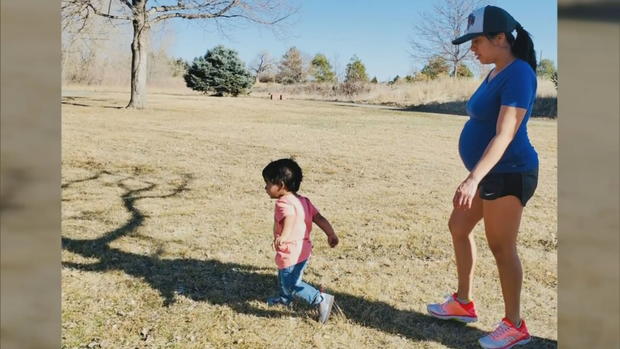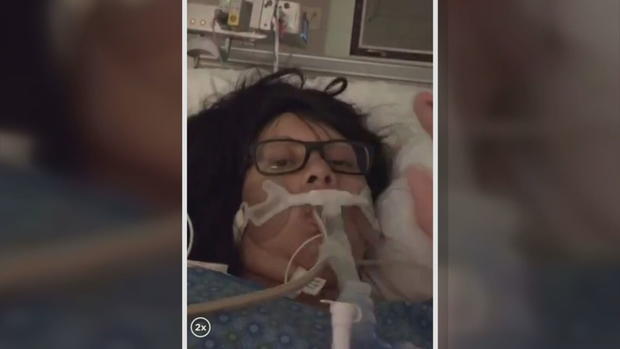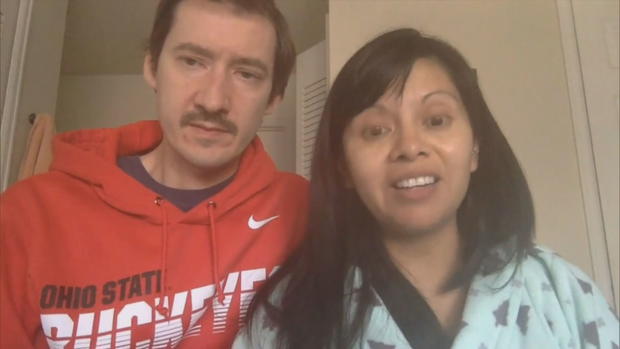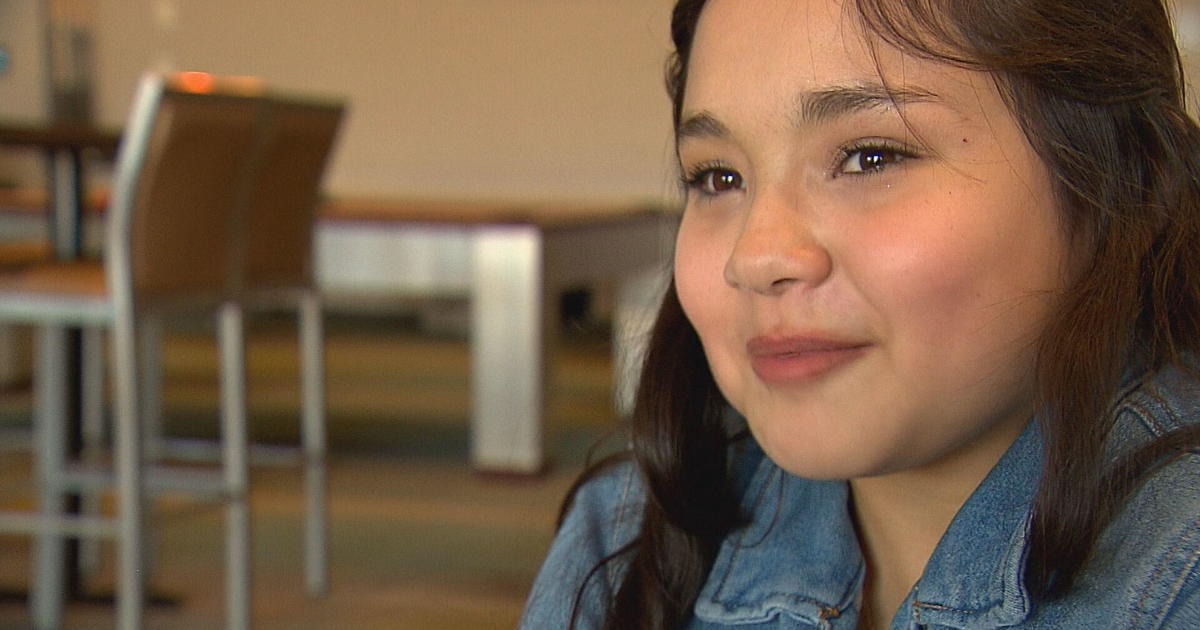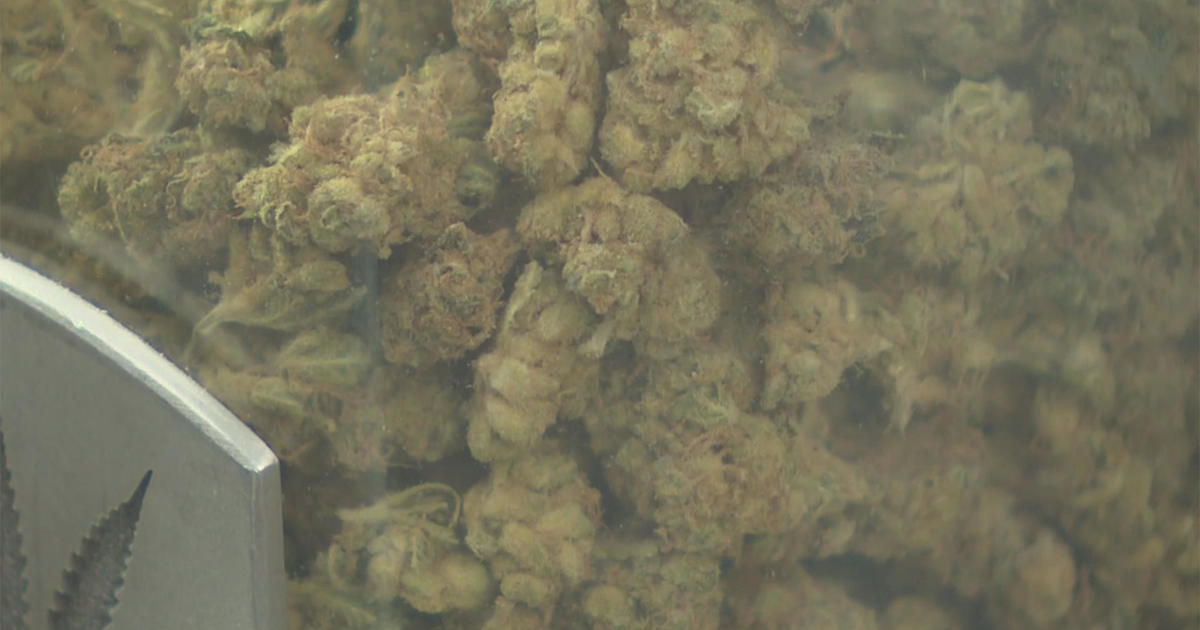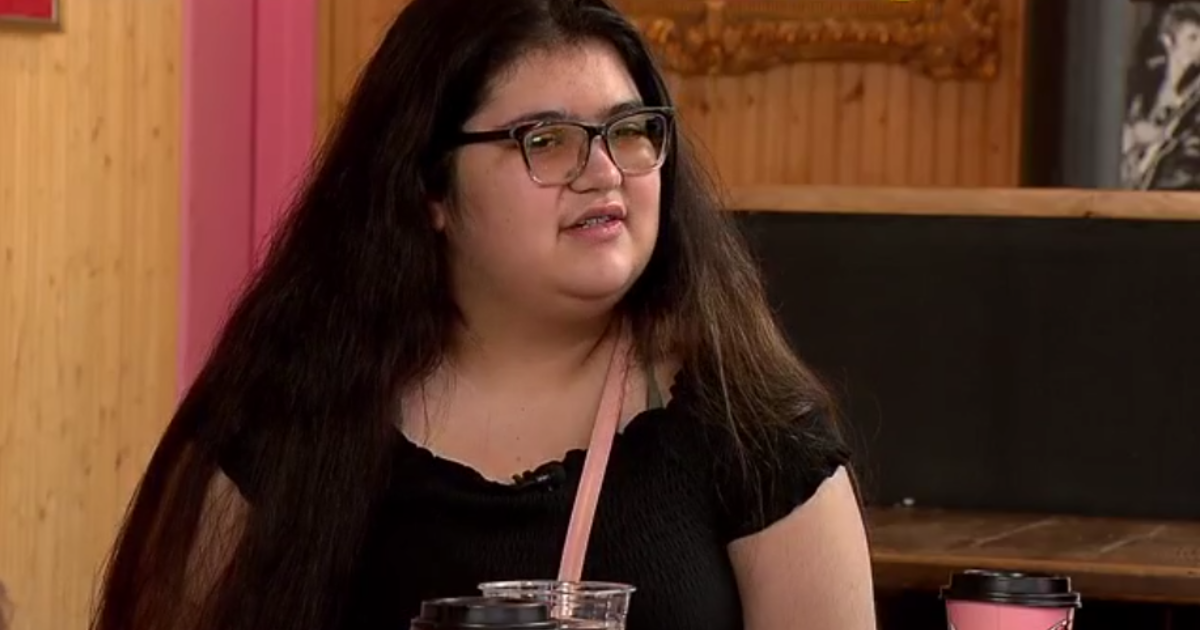Expectant Colorado Mother Spends 2 Weeks In Hospital, Fights Off Coronavirus: 'I'm Lucky I Got To Come Home'
DENVER (CBS4) - As plans to keep Coloradans "safer at home" are put into place amid the coronavirus pandemic, one family hopes that by sharing their experience, people will proceed with caution.
"One day I was at home and the next day I wasn't, you know? And I'm lucky, because I got to come home, but there are a lot of people that didn't, and so staying home and being safe and keeping others safe is so important right now," said Veronica Markley.
The 37-year-old grade school teacher brushed off what seemed like it was just a cold. She was just over 30 weeks pregnant and had been staying at home since school transitioned online. She thought, surely it was a just a sinus infection. Then she began to develop other symptoms.
"The chills ... then I developed a cough, and then I could barely walk and then I went to a screening," she said.
Like thousands of others, she decided to get tested for COVID-19, but said instead of a test, she was told she likely had it and was sent home.
"I just sat there thinking 'Really? I'm pregnant. I'm high risk.' So I guess I just didn't say anything. I just left. Like I said, I was livid."
That night, she began spotting and a friend urged her to go to the emergency room. With her husband taking care of their 2-year-old son, she reluctantly decided to go.
"Finally I was like, 'Okay, I'm going to the ER' -- because she was right. She was like, you need to think about your baby if you're spotting. You need to go. ... I was not really thinking that I'd not be home until two weeks later and almost (have died)."
Markley was eventually transported via ambulance to Presbyterian/St. Luke's Medical Center in Denver which has a high-risk obstetrics unit.
"I bottomed out I guess. I don't even really remember. I just remember them telling me to sign all these things if we have to do an emergency C-section."
Markley was intubated and put on a ventilator. While she doesn't recall much, for two weeks she fought and says one of the only things she recalls were the health care workers by her side.
"I was so lonely and to have a nurse just hold my hand or have a doctor just talk to me…"
She said they would ask her if they could hold her hand. They would update her on her progress and she would listen.
"They said the baby was strong, the baby was moving."
On Monday, she told CBS4 her baby was just a couple weeks behind on growth, but otherwise healthy. Markley is confident that prayers and the round-the-clock attention in the hospital are the sole reason she's alive.
Since the beginning of the pandemic, Presbyterian/St. Luke's has treated six expectant mothers in critical condition with COVID-19, but says there is no evidence to suggest pregnant women are at higher risk.
"We think at this point based on the data that we're seeing so far from China and from our colleagues that pregnant women don't seem to be at significantly increased risk for critical illness compared with the general population but there are still 5% or so of the general population who get terribly sick with this virus," said Dr. Bronwen Kahn of the Obstetrix Medical Group of Colorado.
Kahn, who is board certified in Obstetrics and Gynecology and Maternal-Fetal Medicine, oversaw care for Markley at Presbyterian/St. Luke's.
"We'll be watching the baby's growth over ultrasound, but I anticipate she and her baby are going to be doing really well," she said.
Currently, there is not a lot of data regarding the transmission of the coronavirus in utero, but with every case, researchers are learning more.
Kahn says a team of neonatal care specialists are testing at-risk babies 24 to 48 hours after birth to see if they have the antibodies or the virus itself.
"We don't think at this point that there's a lot of vertical transmission, meaning that there's transmission while in utero from mother to baby. There are some datas that suggest that some babies may be exposed in utero, but they're not sick after they're born unless they contract it by airborne transmission, by close contact with an actively infected mother after delivery," she said.
Kahn says Markley has donated her own information to a study at the University of California San Francisco called the PRIORITY Study, so researchers can continue to learn more.
"It's a systematic effort to collect outcome data about pregnant women who contract COVID during their pregnancy and V has really generously agreed to participate."
For Markley and her husband, Kyle, it's about reminding people that despite the gradual lift of social distancing restrictions, the virus is still among us.
"I think because there's such an impatience right now to get back to normal life and I understand that. I do but you know, I think if the worst thing we have to do is stay at home with our families, I think that's okay," Markley said.
